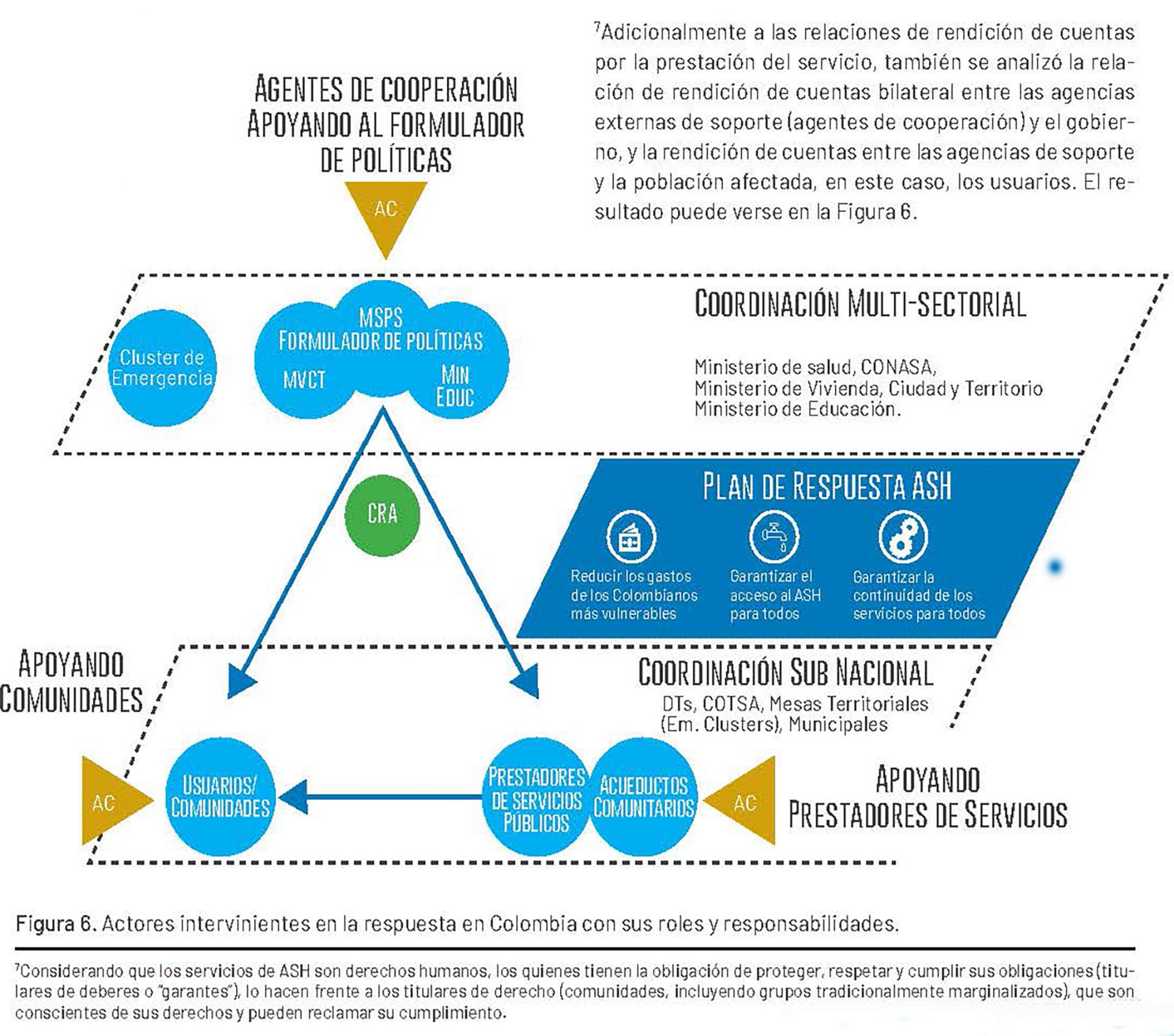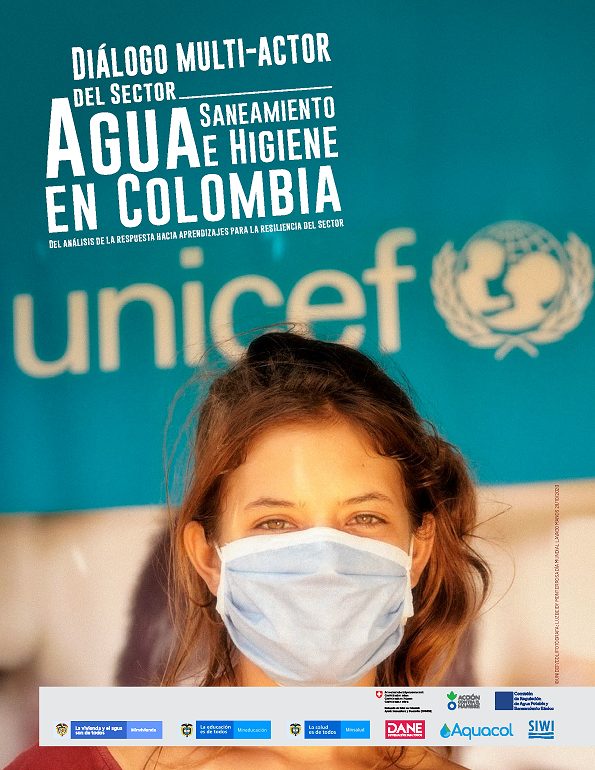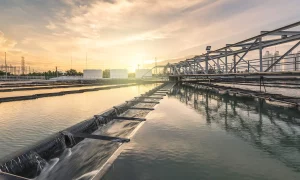Voices on the Water, Sanitation and Hygiene response to COVID-19 pandemic in Colombia

In general terms, the response led by the Ministry of Housing and Territory was perceived as quick, relevant, and effective by service providers and cooperating agents. The government was able to identify the existing needs with respect to the population and the operators. The frequent and up-to-date sharing of information facilitated a greater demand and acceptance on the part of the beneficiaries. In rural areas, there were challenges in communication, mainly in remote communities which lack connectivity. There is also a need to adapt campaign messages to integrate gender equality, interculturalism and especially hard-to-reach population groups.
The intersectoral coordination. The Ministry of Health coordinated with the Ministry of Education and others, through the national roundtable called Intersectoral National Technical Commission for Health and Environment – CONASA. Water is one of the areas around which this coordination was structured. The CONASA was replicated at the decentralized level: the Territorial Councils of Ambient Health – COTSAs, which carried out cross-sectoral coordinated actions of the decentralized or territorial level. The extent to which the coordination at national level was aligned with the one made at decentralized level, remains to be studied further
The Coordination between the national government and international agencies/organisations. The lead of the national response coordinated with the international cooperation agents through the Presidential Cooperation Agency (APC) or bilaterally.
Those with fieldwork operations, as for example the Swiss Embassy in Colombia, adjusted their programs jointly with their bilateral and multilateral field partners and in coordination with the Colombian authorities. Actors active in the humanitarian response also adapted the plans for pre-existing emergencies (such as the migrant or refugee crisis) allocatingadditional financial resources and technical assistance for the pandemic response.
Work at the national level was coordinated by the emergency cluster (led by Unicef and integrated by more than 20 organizations), and at the decentralized level by the Country Humanitarian Team and Inter-agency Group on Mixed Migrant flows. Similar to what happened in the cross sectoral coordination, the alignment of these two levels of coordination was seen as one of the weakest points by the participants organizations.
The results of the dialogue were presented in a session during World Water Week 2021 in the session: Improving COVID response plans by coordinating multi-stakeholder platforms.
Recommendations
Based on the lessons learned during the dialogue process, there were some recommendations to increase sector resilience in face of future emergencies. Among the main recommendations are:
- the need to increase national-territorial coordination among actors in the response,
- count on local innovative mechanism for the decentralized level,
- tailor programs for rural areas (taking into account cultural and gender specificities),
- continue to adjust the response in the case of services provided by non-commercial actors, and
- improve information and communication flows to act in real time.
The dialogue was carried out digitally between October and November 2020 and co-facilitated with the UNICEF Regional Office for Latin America and the Caribbean (LACRO) and the UNICEF Colombia office. Among the participants were the Ministry of Housing and Territory (MinVivienda), the Ministry of Health and Social Protection (MinSalud), the Ministry of National Education (MinEducacion), the Regulatory Commission of Drinking Water and Basic Sanitation (CRA), communal water and sanitation service providers, the World Bank, the Swiss Embassy (humanitarian and development cooperation – COSUDE), Non-Governmental Organizations (NGOs), and other international cooperation agents.





